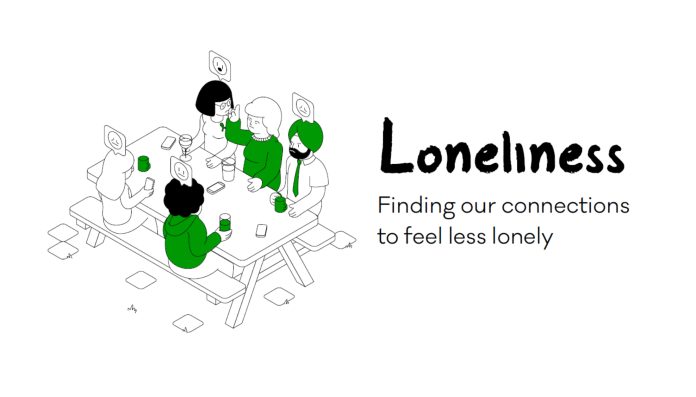It's important to support young people in recognising when they feel lonely, understanding their thoughts and feelings, and identifying their supportive connections.
This school pack provide the materials and resources needed to support pupils to understand:
- what loneliness is and how it can make us feel,
- what we can do to reduce feelings of loneliness; and
- where to find support.
The resources in this pack were developed with pupils and staff who participated in our Peer Education Project (PEP). PEP is a mental health, school-based project that aims to improve the mental health literacy of pupils. The project is freely available to any UK and international school.
The pack is designed to be used in secondary schools, but it also has lots of useful information for primary schools.
The pack includes:
- A lesson plan with PowerPoint slides and worksheets, that support pupils to explore the topic of loneliness in more depth.
- An assembly plan with PowerPoint slides and posters to support the development of a whole-school approach to reducing feelings of loneliness.
- Helpful guides for pupils, school staff, and caregivers on supporting ourselves and others with feelings of loneliness.
Usually, when I feel lonely I want to reach out to people. It doesn’t been to be an actual conversation, it can be just sending a funny meme to a friend or go and do something that makes me feel better, like playing a game. And when my friends feel lonely I make sure to reassure them and let them know how much their company is appreciated.
The students who took part in the workshops felt really proud that they were helping shape the resources for the school pack, and that sharing their lived experiences would mean the resources would be as best fit as possible, for other students and young people, facing the barriers they face in today’s society.
Loneliness research
Finding our connections to ourselves, others, and the world around us, is fundamental to protecting our mental health and reducing feelings of loneliness.
Loneliness is when we feel we do not have the meaningful relationships we want around us. It's something we can all experience from time to time, throughout our lives, and will be different for everyone.
A YouGov poll (2019) of 13 to 19-year-olds found 69% said they felt alone “often” or “sometimes” in the last fortnight, and 59% feel like they “often” or “sometimes have no one to talk to”.
Our Loneliness research
If you need support
Support for children and young people
The Mix – a UK-based charity that provides free, confidential support for young people under 25. Young people can get support from the trained team, either by phone, webchat, or email
Shout 85258 – a free, confidential, 24/7 text-messaging support service.
Samaritans – a UK-based charity that provides free support anytime, from any phone. Call free on 116 123 or email jo@samaritans.org .
Support for school staff
Education Support – Education Support provides mental health and wellbeing support to teachers and education staff in schools, colleges and universities. Call free on 08000 562 561 to speak to a qualified counsellor. They will offer you immediate, confidential emotional support.
Support for parents and caregivers
Young Mind’s Parent Helpline and Webchat provides advice and support for parents and caregivers who are worried about a child or young person.
